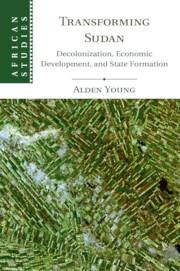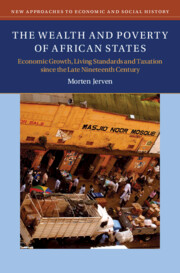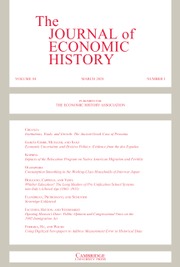Transforming Sudan
Decolonization, Economic Development, and State Formation
£30.99
Part of African Studies
- Author: Alden Young, Drexel University, Philadelphia
- Date Published: February 2020
- availability: Available
- format: Paperback
- isbn: 9781316623848
£
30.99
Paperback
Other available formats:
Hardback, eBook
Looking for an inspection copy?
This title is not currently available on inspection
-
Following the conclusion of the Second World War, the nature of inequality in Africa was dramatically altered. In this book, Alden Young traces the emergence of economic developmentalism as the ideology of the Sudanese state in the decolonization era. Young demonstrates how the state was transformed, as a result of the international circulation of tools of economic management and the practice of economic diplomacy, from the management of a collection of distinct populations, to the management of a national economy based on individual equality. By studying the hope and eventual disillusionment this ideology gave to late colonial officials and then Sudanese politicians and policymakers, Young demonstrates its rise, and also its shortfalls as a political project in Sudan, particularly its inability to deal with questions of regional and racial equity, not only showing how it fostered state formation, but also civil war.
Read more- Provides the reader with a historical treatment of debates on postcolonial state formation which intervenes in social science debates on bureaucrats in African and Middle Eastern states, bridging gaps between multiple disciplines
- Explains Sudan's civil wars through the lens of economic and development policy, disputing the claim in existing literature that postcolonial civil war was not the result of ethnic or religious tensions
- Provides an easy introduction to development studies and economic history across Sudan and the wider region, ideal for non-specialists
Reviews & endorsements
'Today, a technocratic, economistic vision of a modern Sudan is a half-remembered dream. Alden Young's superb book - a combination of political economy and cultural history - brings into focus the important but neglected story of how the country was once a model of planned development, led by an elite of Sudanese and British economists.' Alex DeWaal, Tufts University, Massachusetts
See more reviews'This is a compelling study of the imaginative, destructive projects of economic planning. Alden Young explains how officials in late colonial and independent Sudan came to imagine 'the economy' as a particular, measurable, phenomenon; how they sought to transform it through schemes of development - and how calamitous the consequences of those policies were for the people of Sudan. This book makes a major contribution to our understanding of Sudan's history - and provides a salutary lesson for planners everywhere.' Justin Willis, Durham University
'Young genuinely advances the literature on decolonization, development, and state formation. Transforming Sudan belongs on the bookshelf of every scholar of these related fields and will be of great interest to African and Middle Eastern historians, too.' Cyrus Schayegh, H-IslamInAfrica
'… [Alden Young] offers an insightful and valuable history of how political choices shaped the creation of national statistics and how the implementation of those statistics necessarily constrained the economic imaginaries of Sudanese leaders. One great contribution of his book is to show just how important a vision of limitless economic growth was to post-colonial Sudanese officials.' Stephen Macekura, Diplomatic History
'A series of crises in Sudan, which in the 2000s saw the country being discussed in the company of countries such as Rwanda and Somalia, is often explained as the result of old, lingering ethnic and religious hatreds. But Alden Young offers a well-researched and compelling alternative explanation, arguing that an 'economizing logic' that became the 'policy making lens' in Sudan (p. 10) is to blame.' Jessica Watson, Survival
'… the book powerfully illuminates how discussions regarding economic policy cannot be disentangled from broader questions of meaning of nationalism and legitimate political order as well as how political and economic marginalization is rationalized with purportedly neutral justifications.' Zhe Yu Lee, Journal of Economic Geography
Customer reviews
Not yet reviewed
Be the first to review
Review was not posted due to profanity
×Product details
- Date Published: February 2020
- format: Paperback
- isbn: 9781316623848
- length: 195 pages
- dimensions: 229 x 150 x 11 mm
- weight: 0.29kg
- contains: 1 b/w illus. 2 maps
- availability: Available
Table of Contents
Introduction: the economizing logic of the state
1. From colonial economics to political economy 1820–1940
2. Planning and the territorial perspective, 1945 until 1951
3. Calculable development, 1951 to 1954
4. The new finance officials
5. The nation, in whose name they could act: the military and national income accounting
6. A nation-state alone cannot transform its destiny
Conclusion: towards a new African economic history
Bibliography
Index.
Sorry, this resource is locked
Please register or sign in to request access. If you are having problems accessing these resources please email [email protected]
Register Sign in» Proceed
You are now leaving the Cambridge University Press website. Your eBook purchase and download will be completed by our partner www.ebooks.com. Please see the permission section of the www.ebooks.com catalogue page for details of the print & copy limits on our eBooks.
Continue ×Are you sure you want to delete your account?
This cannot be undone.
Thank you for your feedback which will help us improve our service.
If you requested a response, we will make sure to get back to you shortly.
×










